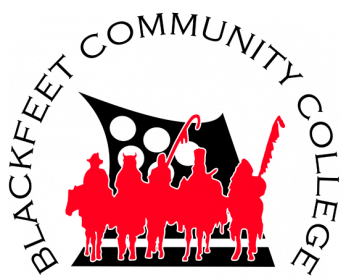Traditional Cultural Practices and their Place in Today's World
Betty Henderson-Matthews | Blackfeet Community College
b_mathews@bfcc.edu

Project Summary
Members of American Indian/Alaskan Native Communities are exposed to high levels of/and prolonged stress. It is well established that stress hormones can directly suppress immune function, which in turn can increase susceptibility to numerous diseases. This study will be a continuation of past research. We have tested the hypothesis that the reason members of the Blackfeet community experienced increased frequency and/or intensity of infectious diseases, autoimmune diseases, allergies and/or cancers is high stress exposure affecting the immune system. In past studies, we had proposed that individuals from the Blackfeet community are exposed to high levels of stress and as a result, this exposure caused immunosuppression, which then is associated with the inability of their immune system to defend itself from diseases. In our prior work, we found that people, who had experienced similar stress indicators, had different stress hormone levels depending on their connection to the Blackfeet community. People who “felt more tied” to their community were the participants who had lower levels of two markers of immune system inflammation linked to psychological stress. After meeting with community members, we determined that “being tied to the community” actually meant having a tie to traditional culture. Based on our previous findings, we hypothesize that people who participate in traditional cultural practices will have lower levels of psychological stress and lower levels of biomarkers related to risk for cardiovascular disease. During the next phase of our investigation, we propose to train new group of BCC students in laboratory techniques and experimental design, analyze past year’s data, present our findings at a research conference and Days of the Blackfeet a research conference held at Blackfeet Community College. We will also create a series of traditional cultural activities for participants and test whether participation in these activities reduces psychological and biological risk for cardiovascular disease and prepare new manuscripts for publication. We will accomplish these goals in continued partnership with our Montana State University mentors.
Project Aims
- To Train interns how to design, perform and conduct Research. Because our proposal depends upon the use of students to perform, create, conduct and analyze the surveys, students will need to be trained in these areas. They will also be conducting the laboratory analysis of the blood and saliva samples collected during 2021-2022 project. To perform these tasks the students will have to learn basic laboratory techniques. This training will be conducted by Dr. Neha John-Henderson and Dr. Agnieszka Rynda-Apple at a laboratory at Montana State University located in Bozeman, Montana.
- Measure levels of psychological stress and biomarkers associated with acute risk for CVD in Blackfeet community members before and after a culturally focused intervention. We have found that individuals that reported a higher ACE score (signifying high level of adverse childhood experiences) had lower levels of inflammatory cytokines (that could contribute to worse health outcomes) only if they also reported being connected to their community. We propose to follow a group of forty community members for two weeks. During these two weeks, Blackfeet community members will participate in a series of traditional cultural activities. The content of these activities will be developed and delivered by student interns under the supervision of Betty Henderson-Matthews. We will measure psychological stress, cultural identification, and levels of secreted acute CVD biomarkers such as C-reactive protein (CRP), secreted ST2 (sST2), galectin-3 or homocysteine before participation in this series of cultural activities and after. We predict that participation in traditional cultural activities will predict declines in psychological stress, increases in identification with the Blackfeet community, and lower levels of acute CVD biomarkers in circulation.
- Dissemination of the data. Student interns will present data from this project at the Days of the Blackfeet and at the Montana State University Research Celebration. We will prepare manuscripts in collaboration with MSU mentors to be submitted for peer-reviewed publication. An article will be published on social media as well as in the local newspaper so that participants and the larger Blackfeet community will have access to results. The proposed work will provide training for Blackfeet Community College student interns which will allow them to develop and ask their own research questions. This training will be valuable for them in their future educational pursuits. This work also extends our previous work by examining whether participation in a series of events focused on Blackfeet culture will reduce psychological stress and biomarkers related to cardiovascular disease risk.

